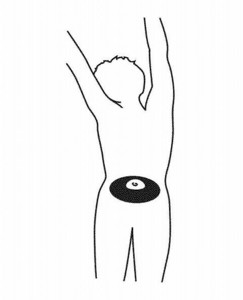As patents expire on originator products, there is increasing interest in developing biosimilars globally. Authors Raoul Orvieto and David Seifer from the Sheba Medical Center and Sackler Faculty of Medicine of the Tel Aviv University in Israel investigated biosimilars used in fertility treatment [1].
Biosimilars are not exact copies and are not considered generic versions of the reference product. They may differ in strength, purity, composition of isoforms and glycosylation profiles, with resulting differences in clinical efficacy or safety. Biosimilar recombinant human follicle stimulating hormone (r-hFSH) preparations have apparently identical polypeptide chains but a somewhat different glycosylation pattern*. In particular, for the biosimilar, the N-terminal glycosylation site of the β-chain contained a higher percentage of tri- and tetra-antennary glycans and of N-acetyllactosamine repeats compared with the originator product Gonal-F (r-hFSH).
Recently, two new recombinant FSH preparations were introduced to clinical practice following randomized, controlled, phase III clinical trials. Both, Bemfola and Ovaleap used the FSH originator product Gonal-F (follitropin alfa) as the reference product, and were found to yield an equivalent number of oocytes (primary endpoint) following a long gonadotropin-releasing hormone (GnRH) agonist suppressive protocol in ‘ideal’ patients, i.e. young, normal responders. Moreover, a non-significant 4% difference in clinical and ongoing pregnancy rates was observed, in favour of Gonal-F over the biosimilars, and was accompanied by half the incidence of ovarian hyperstimulation syndrome (OHSS; 2.9 vs 5.2%, respectively). These studies, however, were underpowered with reference to pregnancy rates. For example, while clinical and ongoing pregnancy rates were non-significantly higher in the Gonal-F compared to the Bemfola group (44.7 vs 36.1 and 41.5 vs 33.7, respectively), power analyses calculation reveals 44.6% and 43.2%, respectively, for the present sample sizes and an α–error of 5%.
Biosimilars follow an abbreviated regulatory pathway, thus facilitating fast track introduction of FSH preparations to the controlled ovarian hyperstimulation (COH) armamentarium. The authors therefore recommend against interchanging or substituting originator and biosimilar agents in clinical practice, and believe that the decision whether to use an originator or a biosimilar product should be reserved to the discretion of the treating physician. Furthermore, they believe the time has come that the measurement of the biological activity of FSH in humans should require other methods rather than the Steelman-Pohley assay. They suggest the determination of dose-response curves in defined populations of women with well-defined outcomes during COH in preparation for assisted reproductive technology (ART). Moreover, further comparative studies are needed in additional patient populations, e.g. older patients, poor responders, patients with repeated in vitro fertilization (IVF) failures and/or polycystic ovary syndrome, before the universal implementation of biosimilars for clinical use.
Conflict of interest
The authors of the research paper [1] declared that there were no conflicts of interest.
Abstracted by Raoul Orfrom the Infertility and IVF Unit, Department of Obstetrics and Gynecology, Chaim Sheba Medical Center (Tel Hashomer), Ramat Gan, Israel and Sackler Faculty of Medicine, Tel Aviv University, Tel Aviv, Israel.
Editor’s comment
*It should be pointed out that changes in the manufacturing processes of originator biologicals have also led to differences in the properties of the resultant product.
Readers interested to learn more about biosimilarity are invited to visit www.gabi-journal.net to view the following manuscript published in GaBI Journal:
Supporting biosimilarity and extrapolation
Readers interested in contributing a research or perspective paper to GaBI Journal – an independent, peer reviewed academic journal platform – please send us your submission here.
Related article
Australian approval for infertility biosimilar Bemfola
Reference
1. Orvieto R, Seifer DB. Biosimilar FSH preparations- are they identical twins or just siblings? Reprod Biol Endocrinol. 2016 Jun 14;14(1):32.
Permission granted to reproduce for personal and non-commercial use only. All other reproduction, copy or reprinting of all or part of any ‘Content’ found on this website is strictly prohibited without the prior consent of the publisher. Contact the publisher to obtain permission before redistributing.
Copyright – Unless otherwise stated all contents of this website are © 2016 Pro Pharma Communications International. All Rights Reserved.








 0
0











Post your comment